- News
- Reviews
- Bikes
- Accessories
- Accessories - misc
- Computer mounts
- Bags
- Bar ends
- Bike bags & cases
- Bottle cages
- Bottles
- Cameras
- Car racks
- Child seats
- Computers
- Glasses
- GPS units
- Helmets
- Lights - front
- Lights - rear
- Lights - sets
- Locks
- Mirrors
- Mudguards
- Racks
- Pumps & CO2 inflators
- Puncture kits
- Reflectives
- Smart watches
- Stands and racks
- Trailers
- Clothing
- Components
- Bar tape & grips
- Bottom brackets
- Brake & gear cables
- Brake & STI levers
- Brake pads & spares
- Brakes
- Cassettes & freewheels
- Chains
- Chainsets & chainrings
- Derailleurs - front
- Derailleurs - rear
- Forks
- Gear levers & shifters
- Groupsets
- Handlebars & extensions
- Headsets
- Hubs
- Inner tubes
- Pedals
- Quick releases & skewers
- Saddles
- Seatposts
- Stems
- Wheels
- Tyres
- Health, fitness and nutrition
- Tools and workshop
- Miscellaneous
- Cross country mountain bikes
- Tubeless valves
- Buyers Guides
- Features
- Forum
- Recommends
- Podcast
news
Route of 2018 Tour de France unveiled in Paris (+ video)
The route of the 2018 Tour de France has been announced today in Paris with race director Christian Prudhomme promising an open and exciting race but also emphasising the safety of riders.
Highlights will include some tough stages during the opening week, a visit to the cobbles on the way to Roubaix, an ascent of the Alpe d’Huez, and what should be a thrilling short stage in the Pyrenees, where there will also be an unprecedented summit finish on the Col du Portet.
The race will get underway on Saturday 7 July in the Vendée region, with more than half of the 189km opening stage from Noirmoutier-en-l'Île to Fontenay-le-Comte raced along the coast, exposing the peloton to the threat of crosswinds. Stage 3 meanwhile features a 35-kilometre team time trial starting and finishing in Cholet.
On the 40th anniversary of the first of Bernard Hinault’s five Tour de France victories, the race heads into his native Britanny after four days in the Vendée.
Stage 5 from L’Orient to Quimper is billed as providing a taste of an Ardennes Classic, while the following day’s Stage 6 includes a double ascent of the Mur-de-Bretagne, which hosts what previous editions suggest should be an exciting summit finish.
One of the most eagerly anticipated stages will be the ninth one from Arras to Roubaix, which will include 15 cobbled sections covering 21.9 kilometres in all.
A first rest day in Annecy will be followed by Stage 10 to Le Grand Bornand, including a 2 kilometre stretch on gravel roads. That stage will also provide the parcours for next year's Etape du Tour.
The race remains in the Alps for the following two days, with summit finishes at La Rosiere and Alpe d'Huez.
A second rest day in Carcassonne is followed by the race heading into the Pyrenees, including an unusually short 65-kilometre stage finishing on the Col d'Aspet which will see attacks from the start.
The only individual time trial of the race takes place in the Basque Country on the penultimate day and with a 900 metre climb at an average gradient of 10.2 per cent ahead of a descent to the finish in Espellette that could prove influential for the overall title.
The race will finish in Paris on 29 July.
Here's a look back at this year's race.
Simon joined road.cc as news editor in 2009 and is now the site’s community editor, acting as a link between the team producing the content and our readers. A law and languages graduate, published translator and former retail analyst, he has reported on issues as diverse as cycling-related court cases, anti-doping investigations, the latest developments in the bike industry and the sport’s biggest races. Now back in London full-time after 15 years living in Oxford and Cambridge, he loves cycling along the Thames but misses having his former riding buddy, Elodie the miniature schnauzer, in the basket in front of him.
Latest Comments
- Eton Rifle 3 hours 41 min ago
The difference is that the Labour Party has actually done something about it by booting him out. If he'd been a Tory, the twat would have been...
- BBB 4 hours 35 min ago
"Buggy hit by car blamed on traffic scheme"...
- Jogle 4 hours 43 min ago
The Giro starts on the 9th May, so the new programme finishing on 5th June would mean that it covers the end of the Giro and then stops
- chrisonabike 4 hours 44 min ago
I feel Google needs one of Henry Beard's books for more up-to-Silver-Age colloquial source material (or even better literal translation)...
- ErnieC 4 hours 52 min ago
I would say a 10 in front of the 6 would be a more appropriate sentence.
- Dr Neal Spowage 5 hours 55 min ago
I'm disabled and a wind up workstand would be a godsend for even the most basic of maintenance tasks. These things are almost non-existent. I'd be...
- Rendel Harris 9 hours 50 min ago
A set of pedals can come in proper handy too sometimes.
- NoOneSpecial 10 hours 17 min ago
Memory lane!...
- wtjs 13 hours 48 min ago
Mercedes A-Class WU66 LLJ below went without MOT for 8 1/2 months from 19.10.23 to 2.7.24. I just happen to be doing some following up and evidence...
- HarrogateSpa 14 hours 46 min ago
I think you've got your Yateses mixed up.

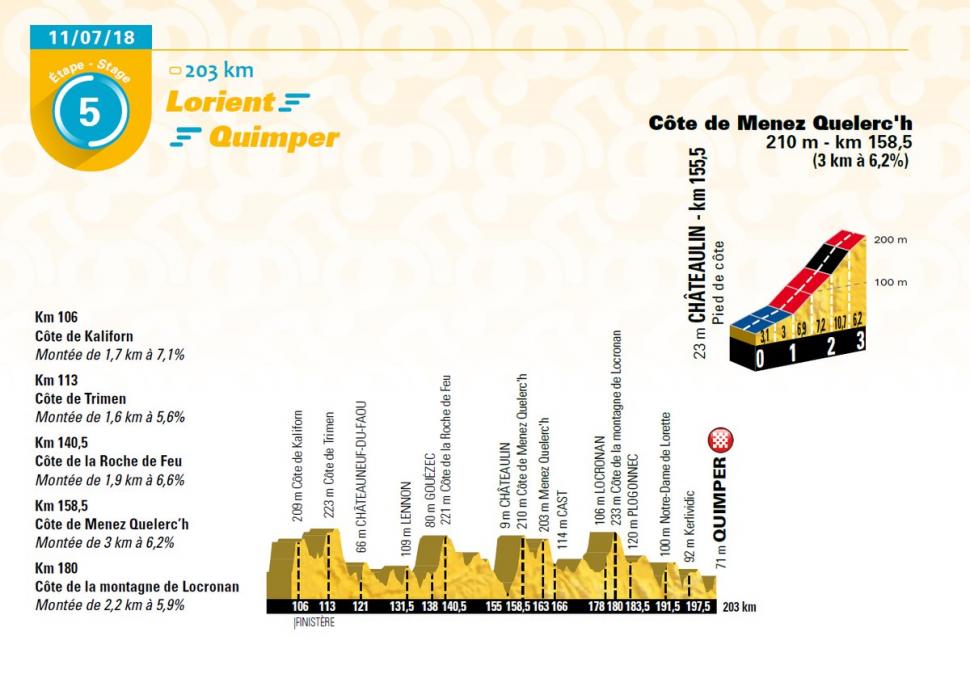
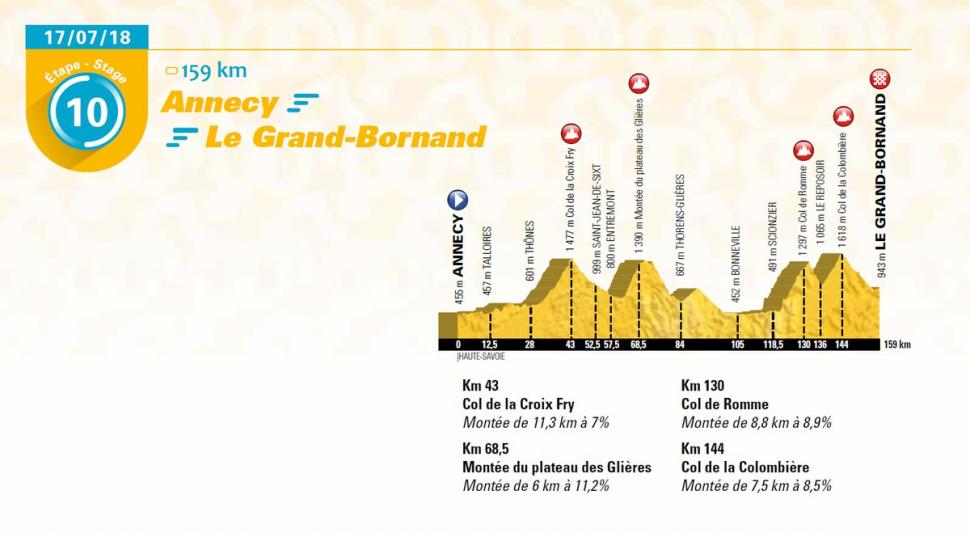
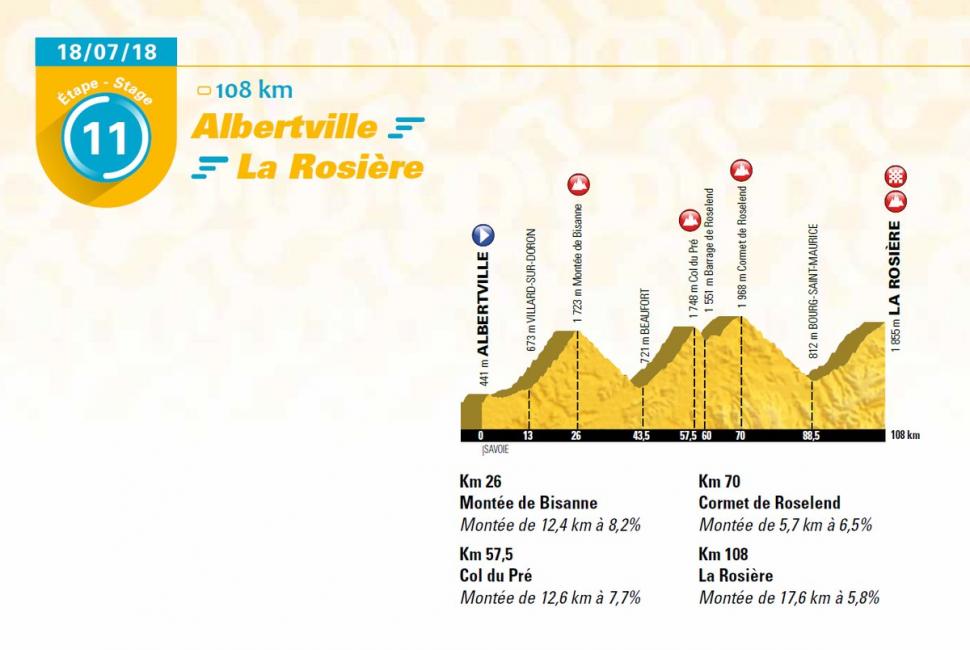
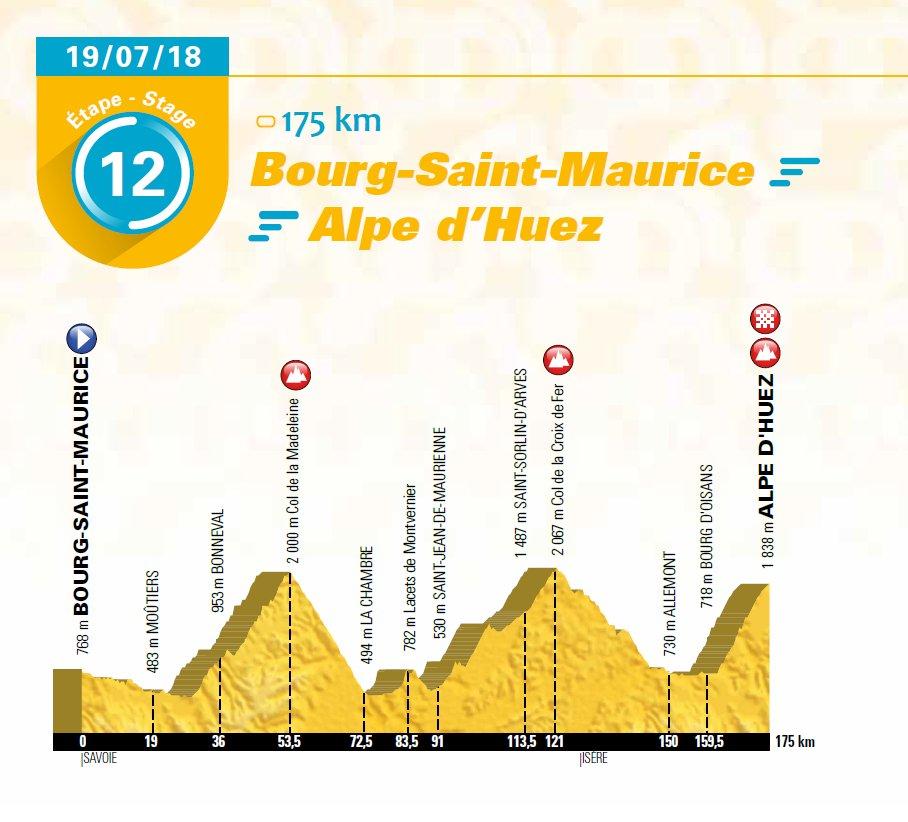
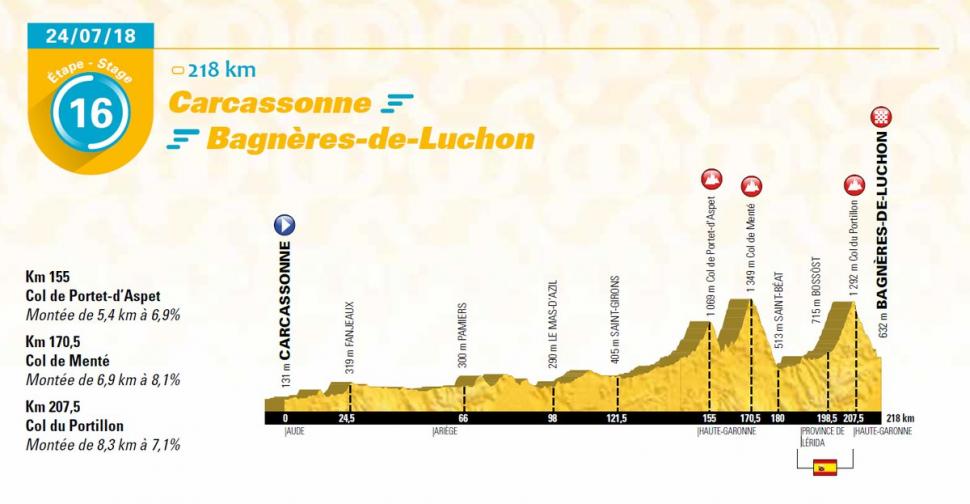
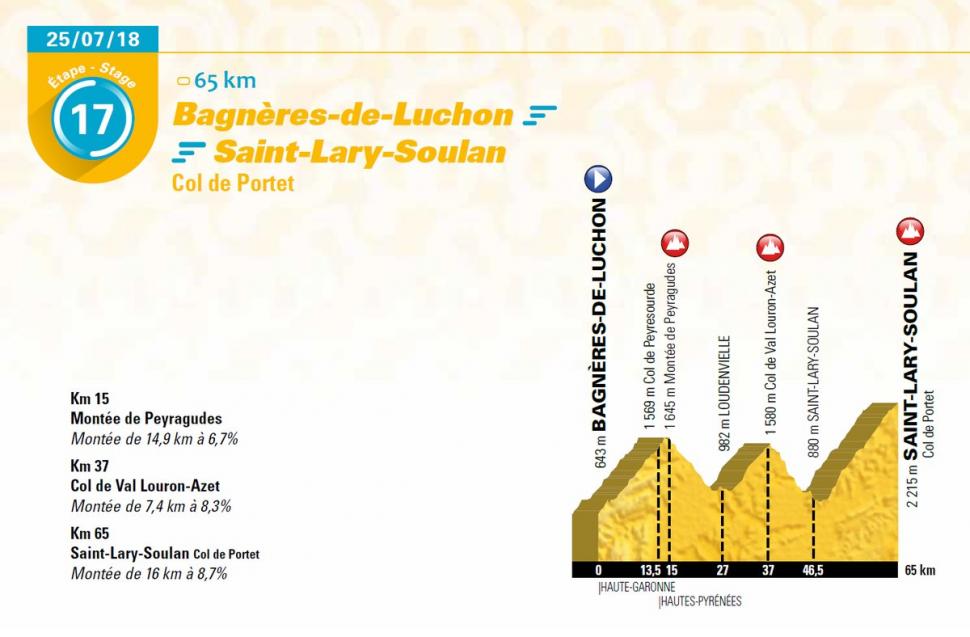

Add new comment
9 comments
Bugger all climbing, as usual. For that reason I'm, yet again, forced not to bother, and just sit at home on my fat arse watching it on T.V. trying not to let my beer froth get in the way. When WILL they learn?
Many, many years ago I cycled up to the Plateau des Glieres and found the memorial to the resistance and also the road continuing as unsurfaced. This was long before GPS computers and I would have had 23mm or even 21mm tyres. I remember wanting to continue but I didn't know how long the gravel section was and I did not have confidence that my tyres would survive so I turned back. I'd love to have a go on a current bike. The Etapers should enjoy this section, those who aren't stopped at the side swapping out an inner tube (a common sight in gravel events).
It's only 2km of gravel. No-one ever said you would need a dedicated bike for 2km of relatively polite unsurfaced track.
If you want to venture off tarmac in a more committed way then a gravel bike isn't hype.
The inclusion of gravel could be interesting. We've been told by the cycling companies that dedicated gravel bikes are seemingly required for gravel and specific tyres are also needed. So, are we going to see all the peloton switch bikes to support their sponsors? Or are we going to see that all this gravel bike hype is nonsense as the peloton continues on their road bikes unaffected?
You don't already have your answer from Strade Bianche? Or Paris-Roubaix, or Flanders?
You do have a point though about the separate model category
Hmm. Being a super fit pro with a support car, half a dozen spare bikes on hand and your bike only having to survive 200k before seeing a mechanic isn't the same scenario as someone doing the Dirty Reiver or an off-road coast to coast ride.
Really looking forward to stage 17, at 65km of almost all climbing and decending it could be pretty unpredictible.
Probably not quite the route Tom Dumoulin was hoping for, I think this favours Froome a little more (as well as several others) not that I think that would necessarily stop him.
Is it just me or does this feel like a proper tour route?
Flat first week, mountains, break away days, mountains then Paris.
Luvly!
I love that you think those two Breton stages I mentioneed are "flat"
ps - As in, you may consider them that way, my legs certainly wouldn't.